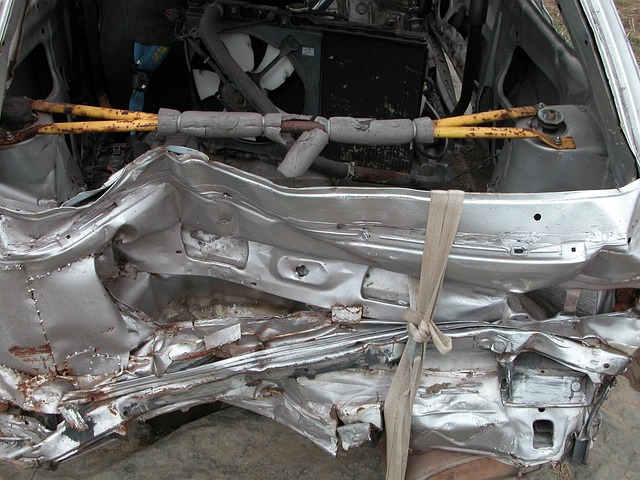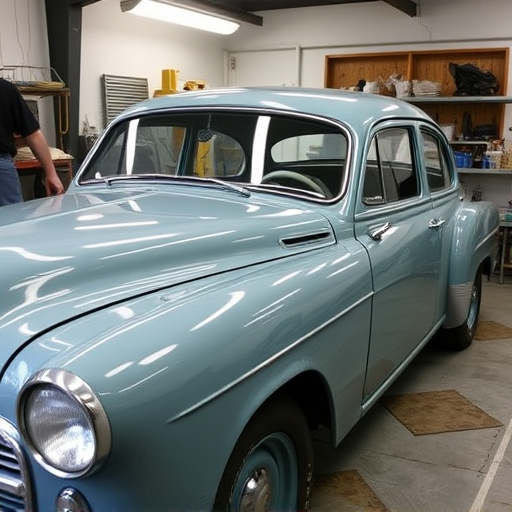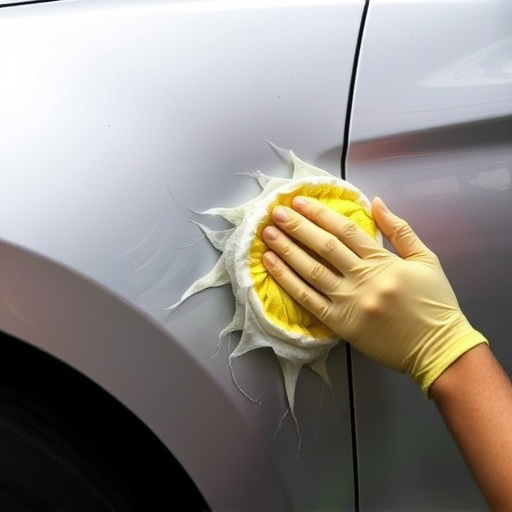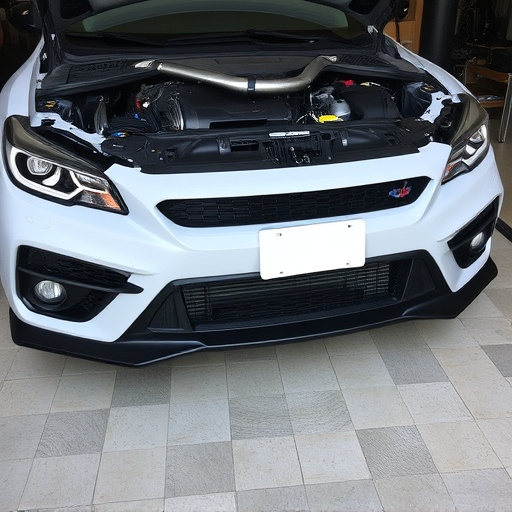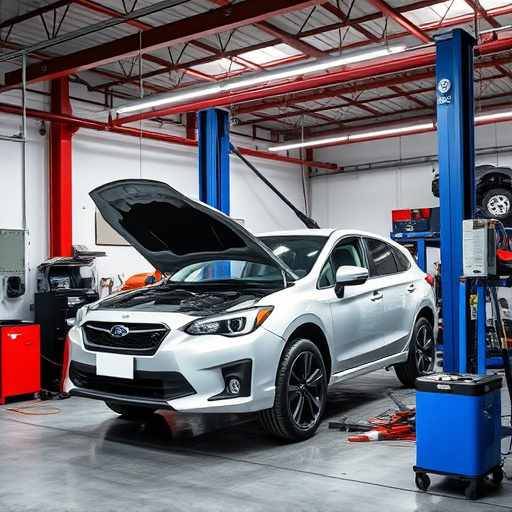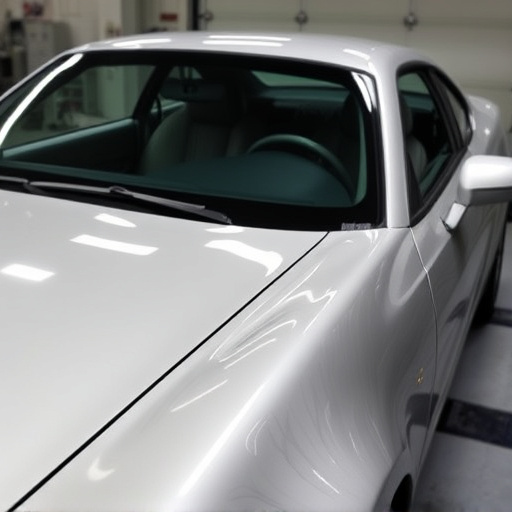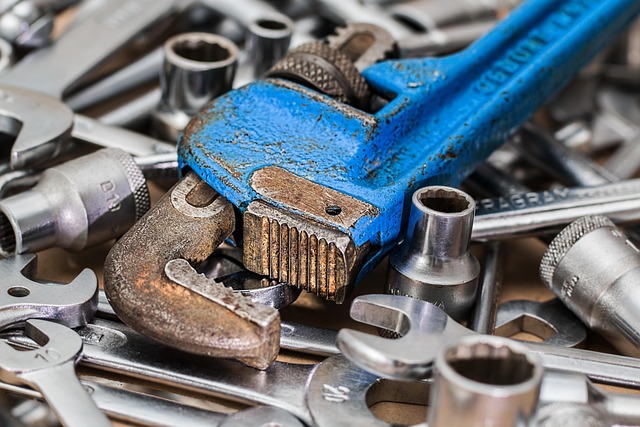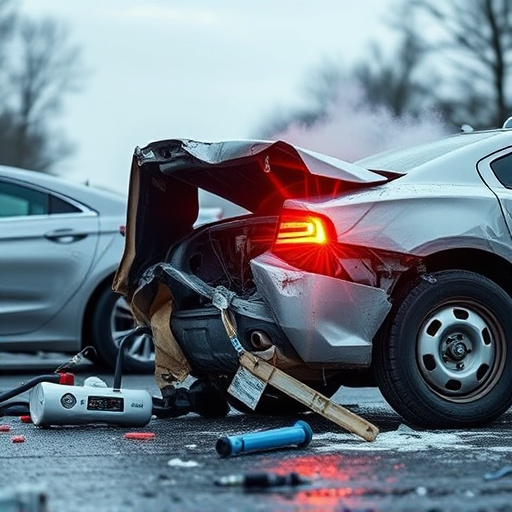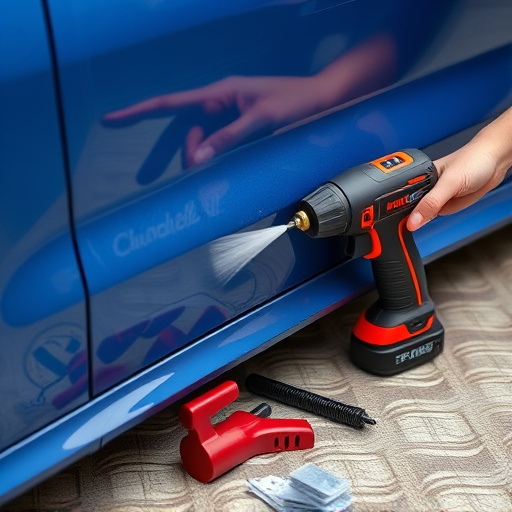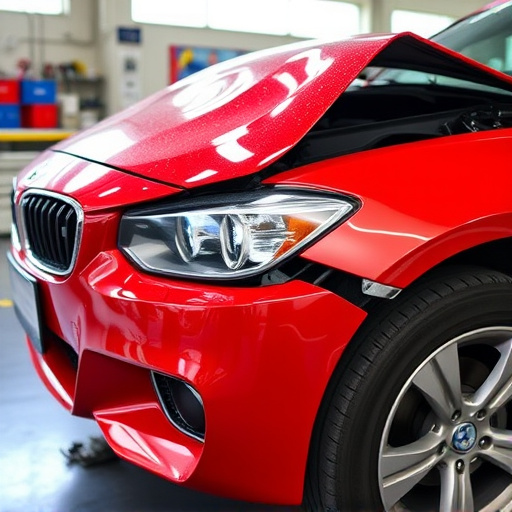Advanced technologies like AI, machine learning, 3D imaging, and computer vision are revolutionizing quality control inspection in auto body shops. These innovations detect minute imperfections, analyze complex data, and streamline processes, reducing errors and boosting repair quality. Automated systems, including robotics, accelerate repairs, enhance precision, free mechanics from routine tasks, and set new industry standards for consistent, high-quality outcomes. The future of quality control inspection is bright with digital transformations promising unparalleled accuracy and efficiency.
The auto body shop landscape is evolving, with quality control inspection at the forefront of this transformation. As technology advances, traditional manual methods are being replaced by innovative solutions that promise enhanced accuracy and efficiency. This article explores the future of quality control in auto body shops, focusing on evolving technologies, the rise of automated systems, and emerging trends prioritizing safety and precision. Get ready to dive into a revolution in automotive craftsmanship.
- Evolving Technologies for Accurate Inspections
- Automated Systems: The New Normal in Auto Body Shops
- Ensuring Safety and Precision: Future Trends
Evolving Technologies for Accurate Inspections

The future of quality control inspection in auto body shops is being reshaped by evolving technologies that promise greater accuracy and efficiency. Automated systems, powered by artificial intelligence (AI) and machine learning, are now capable of detecting even minute imperfections in car damage repair processes. These advanced tools can analyze complex data sets from frame straightening procedures, offering insights that human inspectors may miss.
From 3D imaging to computer vision, these innovations are transforming the way automotive restoration is monitored. By leveraging these technologies, shops can streamline their quality control processes, reduce human error, and ultimately deliver higher-quality repairs. This shift towards digitalization ensures consistent and precise inspections, setting new standards in the industry.
Automated Systems: The New Normal in Auto Body Shops

The auto body industry is witnessing a significant transformation with the advent of automated systems, marking a stark contrast from traditional manual quality control inspection methods. These cutting-edge technologies are becoming the new normal in collision repair shops and automotive restoration facilities worldwide. By introducing robotics and artificial intelligence, car dent repair processes are accelerated, while precision and accuracy reach unprecedented heights.
Automated systems offer numerous advantages, such as reduced human error, increased productivity, and improved consistency in final outcomes. They can efficiently detect even subtle imperfections that might be overlooked during manual inspections, ensuring every repair meets the highest standards. This shift not only enhances overall quality control but also allows mechanics to focus on more complex tasks, fostering a more efficient workflow within these modern auto body shops.
Ensuring Safety and Precision: Future Trends

As auto body shops evolve to meet the demands of modern vehicle manufacturing and consumer expectations, the future of quality control inspection is poised for significant advancements. Safety and precision are paramount in the intricate process of automotive body work, and emerging technologies are set to transform how these critical checks are conducted. The integration of advanced robotics and artificial intelligence (AI) promises unprecedented accuracy in measurement and detection, revolutionizing car collision repair processes. These innovative tools can identify even the subtlest imperfections, ensuring every repair is up to par.
The trend towards digitalization and automation will enhance the efficiency and consistency of quality control. Digital imaging and 3D scanning technologies enable detailed documentation and precise comparisons, allowing auto body shops to maintain rigorous standards across various auto body services. This technological evolution not only ensures the safety of vehicles but also streamlines operations, reducing time and costs while maintaining exceptional quality in every aspect of car collision repair.
The future of quality control inspection in auto body shops is poised for significant transformation. Advancements in technology, such as automated systems and evolving digital tools, are revolutionizing the way repairs are assessed and ensured. As these trends continue to gain traction, auto body shops can look forward to enhanced precision, increased safety, and improved overall efficiency in their quality control processes.
